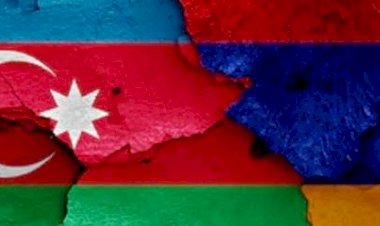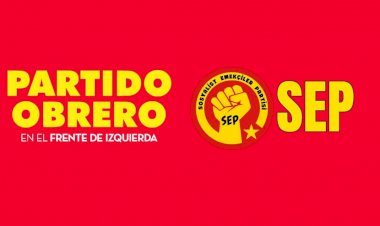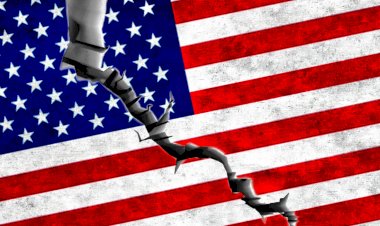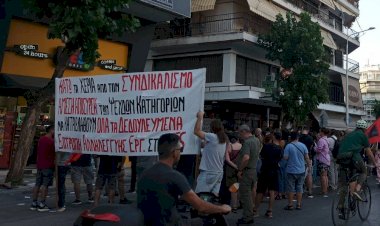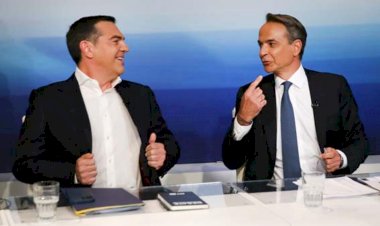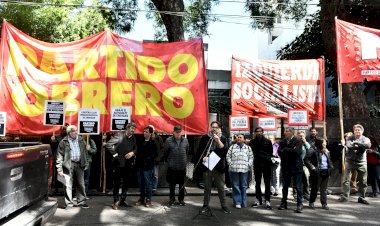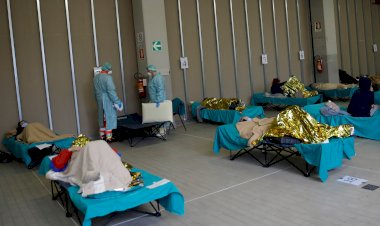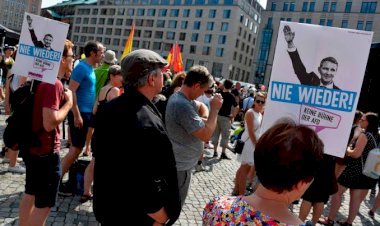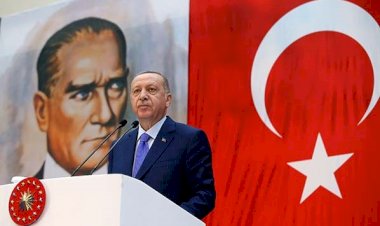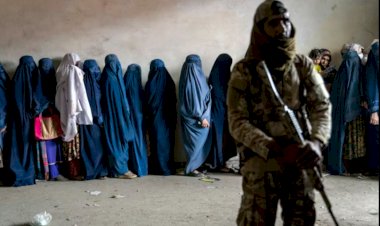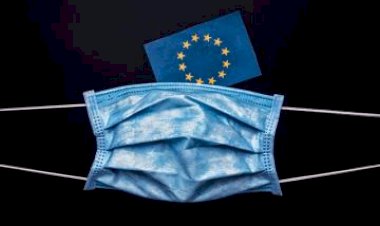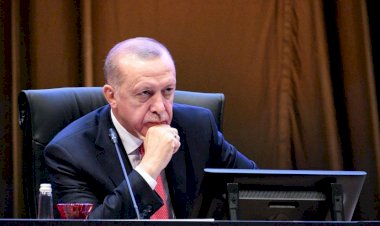Interview with PO Leader and Buenos Aires provincial deputy of the FIT Guillermo Kane on the Argentine elections, which far right Milei had a victory
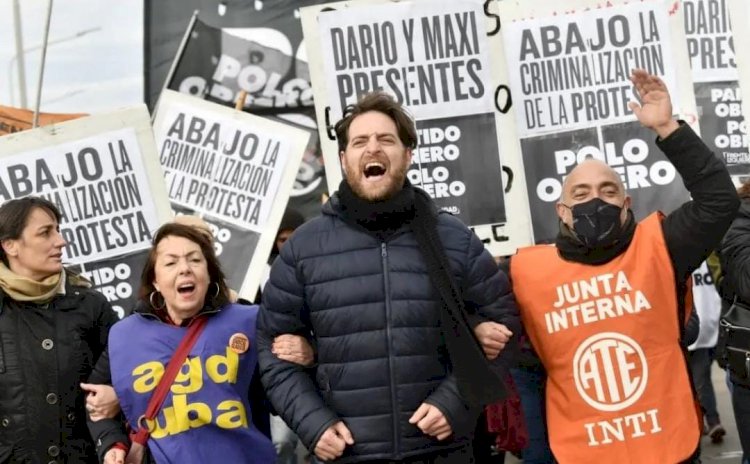
- How do you foresee the level of combativeness of the social opposition against future attacks after Milei's election victory? Could you discuss this in terms of the working class and the piquetero movement, the women's struggle and the student opposition.
Only one week has passed since Milei’’s electoral victory. In this first week the Polo Obrero (headed by the PO) and the most left wing sectors of the piquetero movement have gathered in a national meeting on Thursday 23rd and voted a national demonstration to stand up to the outgoing government, with marches that will be held this week, and to Milei, on the 19th and 20th of December, on the anniversary of the 2001 rebellion. Some sectors of the left that usually participate in common actions in these movements but voted for Massa in the ballotage were absent from this meeting and this call to mobilize. They said they want to wait to see if social movements linked to Peronism are willing to demonstrate.
On Saturday 25th mass women’s rallies were held. It is the national day against violence against women. Palestinian flags dominated the march in Buenos Aires. The central forces were those of the women’s organizations of the revolutionary left, among them the Plenario de Trabajadoras, linked to PO. Women’s organizations related to Peronism decided not to march on this occasion.
The large Peronist led unions are holding meetings with Milei functionaries and have not called any sort of action, even though he has announced privatizations and some layoffs and suspensions have begun in advance of the announced onslaught. Left-led unions are carrying out struggles in the tire workers union (SUTNA, led by PO) against layoffs and for wage increases in different factories. The left has been calling important strikes among the teachers of the province of Buenos Aires, against Peronist leadership of the union and with much persecution from the local reelected Peronist government. Assemblies have started to meet in several workplaces threatened by privatization.
The student movement has yet to recuperate itself as an organized sector in the struggle after the pandemic marked a point of profound desorgnanization and political advances by bourgeois forces in control of the student centers. Youths have also been one of the sectors most seduced by far right agitation.The youth of the PO, Unión de Juventudes por el Socialismo, is among the few left forces that remains in control of some important student centers (two of the colleges of the University of Buenos Aires, for example). We are centering resources to group youths against the reactionary tide, against repression.
As with the victory of the Macri government in 2015, Peronism and its allies in unions and social movements have a strategy of demobilizing and not taking to the streets with excuses ranging from the possibility of repression to the democratic right of Milei to govern and thus their decision to save themselves to make their opposition heard through elections.
The degree of mass response that will be prepared in this first moment is still to be seen. It is undoubtable that workers will suffer a ferocious attack, that the left and the PO will agitate to break the passivity which has predominated among important but isolated struggles and union bureaucracy, Peronism and center-left allies will work for demobilization and to have an elecotralist outlook and not one of direct action.
Milei himself considers that his possibility to control “the streets” and not allow demonstrations is one of the central objectives of his new government. We prepare the demonstrations of December as a first trial of force of the mobilization of sectors in struggle with the new government.
- What do you think about the future of the economic crisis in Argentina? What can Milei, who advocates completely dollarizing the economy, do in conditions of dollar scarcity?
Milei has recognized that it is very likely that a hyperinflation occur during the first few months of his government. He is travelling right now to the IMF in Washington to renegotiate the terms of the debt payments to see how a default may be adverted, but it is not clear what the terms of a new deal will imply. Even though Milei has admitted that not only dollarization must be left for a moment in the future, but he even said he would not lift the virtual lock on sending dollars in and out of Argentina that exists with the current Peronist government. He has apparently split with the more extreme libertarian economists who promoted dollarization and closing the central bank in favor of reinstalling members of the economic team that functioned during the Macri administration, who are direct representatives of funds like Black Rock, who control central Argentinian banks and hold most of the country’s private debt.
Different bourgeois sectors demand a more profound devaluation of the Peso than the one already carried out. Milei has also said he would end with state subsidies for public services companies and make the rates for users go to dollarized prices. A dollarization in the current conditions would destroy wages through a huge devaluation, apart from strengthening the colonial domination of the US and immediately closing down wide sectors of the already failing industry. Even if a more gradual approach is chosen, the economic crisis will probably reach more extreme levels, with great social consequences in terms of the already high levels of poverty and precarization of labor.
- What do you think about FIT-U's performance in the previous elections? Can FIT-U become the main combative force against Milei and lead the working class movement and protests?
The FIT-U had a minor election. 2.6 for president, with a few more voting for local congressmen rounding out to over 800,000 votes nationwide. It was a setback from the 2021 parliamentary election, when in important working class districts we had received a 10% of the vote. A very militant campaign managed to not get swept completely by the tide of electoral polarization and we added a congressman from the province of Buenos Aires, local legislature members in the city of Buenos Aires and provinces like Neuquén, Cordoba and Jujuy. It is very clear that we were not able to challenge the ire against the government that went to Milei’s far right, nor the fear of the rise of the ultra-right, which was channeled by Massa.
This relates to defects in the functioning of the FIT-U, including its inexistence as a common organization or block in the class struggle, being relegated, as a front, to elections and parliamentary activity. PO has long proposed a shift, linking the FITU to the piquetero movement and combative unions. We have also suffered from far right activity trying to assimilate the left to kirchenrism, which was somewhat benefited by political concessions of FITU members such as the PTS who said that Peronist leader Cristina Fernandez Kirchner’s flagrant corruption cases were solely right wing manipulation. Other members of the FITU, such as IS and the MST, even went so far as to vote for Peronism in the ballotage, in a break from the FITU’s tradition of working class independence.
The PO will promote the upsurge of the masses against Milei, and is already working for this objective. Whether the Front as it exists o under a new form can be a channel in that sense or not is not yet clear, and is even questioned for the moment. This will depend on the position each of its parties take, and also the rank and file militants. It will be the result of a process of political discussion and clash of ideas and programs.
- How will Peronism's ranks be affected by the electoral defeat? What needs to be done to win the working masses, who follow left Peronism, to revolutionary politics?
The defeat of Peronism in the ballot boxes is the result of a massive split of a sector of the working class with them. It is their worst election in their eighty years of existence as a political movement. The idea that workers are all followers of Peronism is denied by the election itself. And the more leftist members of Peronist put up their most reactionary candidate for presidency. The so-called leftist Peronist candidacy in the primaries, the Vatican-backed social leader Juan Grabois, received 5.6% of the votes, far from being able to claim the leadership of the masses.
Peronism is discussing the level of cooperation it will give the Milei government. Several of its leaders, such as the current president, Alberto Fernández, and the finance minister and ex presidential candidate, have announced they will leave the country this month. Their previous presidential candidate and current ambassador, Daniel Scioli, has announced he will join the Milei government, as several other “moderate” Peronists. The Peronist unions are preaching passivity, cooperation and waiting to see what happens.
The main bet of the PO and revolutionary leftists must be to be the main promoters of united front to defeat the prospects of a reactionary government which has announced among its objectives privatization of education and health, freeing criminals from military dictatorship, ban on legal abortion, and a drastic cut of employees in the state. Organizing and being the driving force of the upcoming struggles, while Peronism in the most part will be absent, is the terrain to win over workers who have supported the different bourgeois options in this election.
- Could you tell us about the fascism debates on Milei?
Milei is a very reactionary ultraright formation. His ideology is more related to a very extreme version of pro-US freemarket capitalism than nationalism or fascism. He has not formed a party of his own, and much less an organized movement with strike forces. He has opted to dissolve a Libertarian Party, preferring to make direct agreements as a candidate with businessmen, media outlets, traditional local parties, sectors of Peronism, Macri’s wing of the conservative PRO, etc. The Peronists have been among the biggest financiers of Milei’s campaign, giving him the legal party he used to run in elections and many of his local candidates, as part of a gamble to save their losing chances at the ballots, splitting votes between Milei’s party and that of Macri. Milei does not lead a fascist movement, nor is it the bourgeoisie’s policy to form a fascist regime in Argentina.
The idea that the recent elections were a face-off between “democracy and fascism”, formulated by publicity experts sent by Lula to collaborate with Massa’s campaign, greatly exaggerated the differences between bourgeois politicians in the different blocks. They have all had similar positions and collaborated personally at different moments in time. It is, in particular, an attempt to put the Peronist government, that has led half the population to poverty, into a more favorable light. Those leftists who speak of Milei as fascist have often used it to vote for Peronism in the run-off.
Milei is, however, an admirer of aristocratic repressive regimes of the history of Argentina, from the conservatives of the 1880’s to the military dictatorships of the 20th century and promotes an escalation of state repression against workers and those that take to the streets. Members of his political sector have agitated pseudo-fascist proposals of organizing civilians to attack workers over the years and have said they must be faced with “bullets or jail”.
Recently, ex president Macri, who supported Milei in the ballotage and is negotiating a government coalition with Milei said their voters should march to confront with demonstrators against the Milei government.
These very real dangers must be faced taking the streets for workers and agitating for mass confrontation with the new government. The possibility of martial law and the need for clandestine political work in Argentina is not part of the current scenario and shying away from open work to mobilize workers in the name of it would give Milei a victory he might not otherwise achieve.



